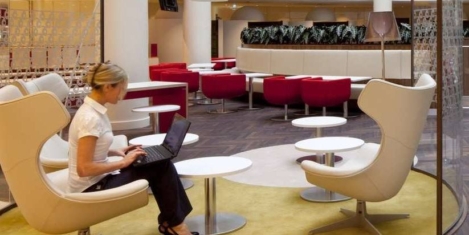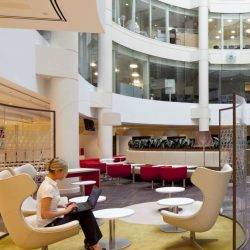April 11, 2017
The world will be completely awash with information by 2025 and firms should adapt soon 0
 The amount of data humans and their devices create will rise to 163 zettabytes over the next eight years, according to a new report from data firm Seagate. That is ten times as much as we created last year. As usual, the amount of data described in the report is inconceivable. A linguist called Mark Liberman once estimated that every word ever uttered by human beings would create around 42ZB of stored data. So if I were to make up a fact such as that a printout of 163ZB of data could create a planet the size of Neptune, you’d have to believe it. It’s a lot and it’s rising exponentially, that’s all we need to know. The interesting thing apart from the scale of the storage issue, is that the major source of the increase will be businesses not humans and that by 2025, we will be interacting with an Internet of Things connected device an average of 4,800 times a day.
The amount of data humans and their devices create will rise to 163 zettabytes over the next eight years, according to a new report from data firm Seagate. That is ten times as much as we created last year. As usual, the amount of data described in the report is inconceivable. A linguist called Mark Liberman once estimated that every word ever uttered by human beings would create around 42ZB of stored data. So if I were to make up a fact such as that a printout of 163ZB of data could create a planet the size of Neptune, you’d have to believe it. It’s a lot and it’s rising exponentially, that’s all we need to know. The interesting thing apart from the scale of the storage issue, is that the major source of the increase will be businesses not humans and that by 2025, we will be interacting with an Internet of Things connected device an average of 4,800 times a day.









 London’s office workers are looking for shorter commutes, demanding more collaborative and networking opportunities while at work and better access to green space, retail, leisure and wellness; all of which could present a huge opportunity for the less congested outer London boroughs, a new report suggests. According to Savills latest London Mixed Use Development Spotlight, as employers and employees alike demand more from their workplace and their work- life balance, London’s outer boroughs could reap the benefits by providing greater flexible office space and affordable homes at a variety of price points. According to Oxford Economics, employment in sectors that tend to occupy co-working spaces is set to rise by 20,000 people in the outer London boroughs over the next five years, which equates to a gross additional need of 1.6 million sq ft (148,644 sq m) of office space.
London’s office workers are looking for shorter commutes, demanding more collaborative and networking opportunities while at work and better access to green space, retail, leisure and wellness; all of which could present a huge opportunity for the less congested outer London boroughs, a new report suggests. According to Savills latest London Mixed Use Development Spotlight, as employers and employees alike demand more from their workplace and their work- life balance, London’s outer boroughs could reap the benefits by providing greater flexible office space and affordable homes at a variety of price points. According to Oxford Economics, employment in sectors that tend to occupy co-working spaces is set to rise by 20,000 people in the outer London boroughs over the next five years, which equates to a gross additional need of 1.6 million sq ft (148,644 sq m) of office space.


























